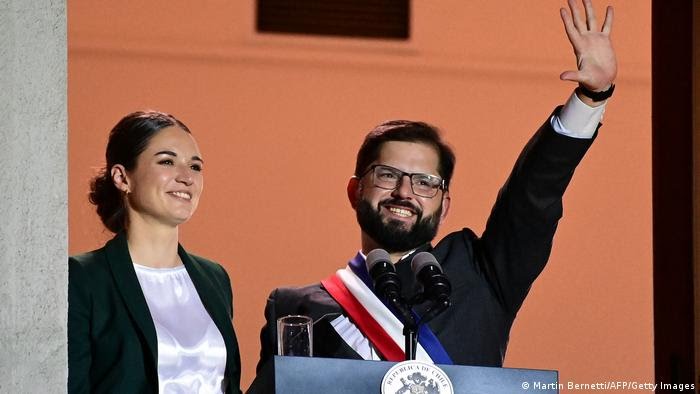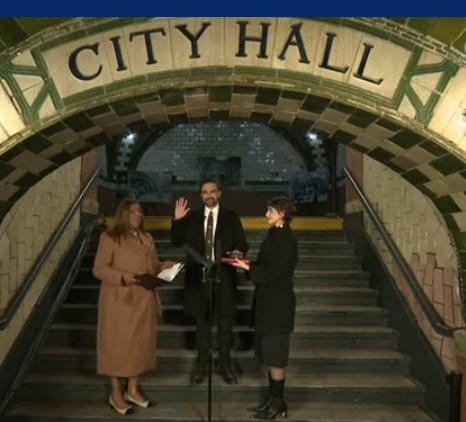Chile Swears In 36-year-old Gabriel Boric As President
Chile President Gabriel Boric has sworn in its youngest-ever president, Gabriel Boric, a former student activist who will take the reins as the South American nation is undergoing an important political and social transition.
At the Congress building in the port city of Valparaiso, Boric on Friday took the presidential sash from outgoing billionaire President Sebastian Pinera. “Before the Chilean people, I make my pledge,” he said.
Boric, 36, is taking over a country seeking change following mass 2019 protests, which he supported, against deep-rooted inequality in income, healthcare, education and pensions.
His administration will oversee a referendum on a new Chilean constitution, which an elected, constituent assembly is currently rewriting to replace the Magna Carta put in place by Augusto Pinochet’s dictatorship.
“What we’re seeing here is really an historic shift, a real sign of the changing times in this country,” Al Jazeera’s Latin America editor Lucia Newman reported from outside the Senate building in Valparaiso.
“[Boric] is now heading a feminist, environmentalist government that’s going to try to bring about historic social change, led by a cabinet that is mostly full of young people who don’t have much experience in government, but that certainly have big plans for this country,” Newman said.
Pinochet removed socialist President Salvador Allende, who died by suicide in 1973 during a military coup and whose legacy Boric has often praised.
“He reminds me of Allende, but I hope it has a happier ending,” Marigen Vargas, 62, who travelled all night to be at Boric’s inauguration, told the Reuters news agency. “We want a more united, happier Chile.”
Challenges ahead
Boric faces a raft of challenges from an economic slowdown, high inflation and a split legislature that will test his deal-making abilities to push through reforms in healthcare and pensions, while toughening environmental regulation.
Carlos Ruiz, an academic at the University of Chile who taught Boric, said the new president would have to deal with a rising ultra-conservative bloc that did well in elections last year and find consensus to push through his reforms. “These are now the tasks lying ahead of Boric,” he added.
That was echoed by political analyst Claudia Heiss of the University of Chile. “This is a government that comes to power in a very fragmented political climate, which does not have a parliamentary majority and therefore cannot make very radical reforms in the short term,” Heiss told AFP.
But environmentalists and Indigenous community advocates have welcomed Boric’s presidency as an opportunity to advance greater protection of those rights.
A part of the Senate on Friday was filled with representatives of Chile’s various Indigenous communities in traditional attire.
“It’s a sign that it’s going to be an inclusive government,” Cecilia Flores, an Indigenous Aymara told Reuters, adding it was the first time representatives from each Indigenous group have been present at the inauguration. “It’s going to be a government that will make the social changes the people of Chile have been fighting for, especially Indigenous groups.”
More than 20 international guests were confirmed to attend the investiture ceremony, including Alberto Fernandez and Pedro Castillo – the presidents of neighbouring Argentina and Peru – King Felipe VI of Spain, and famed Chilean author Isabel Allende.
Boric’s female-majority cabinet also was sworn in on Friday, with delegations from the United States, Spain, Argentina, Peru and others in attendance.
“This is an era full of hope for the defence of society, young people, a green future and equality,” tweeted Yolanda Diaz, Spain’s second deputy prime minister who flew to Chile, referring to Boric’s environmental and feminist agenda.















Post Comment